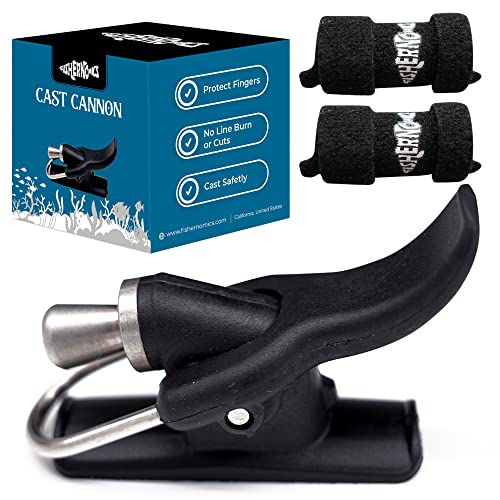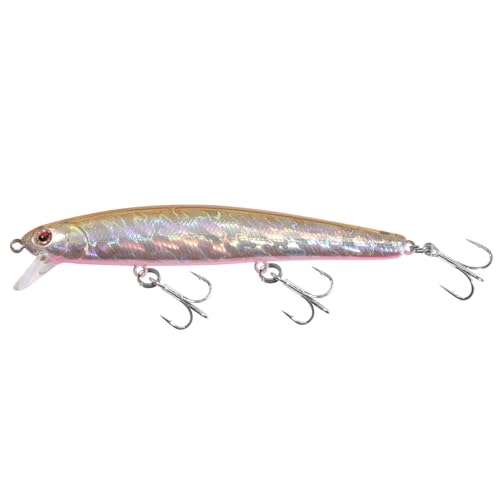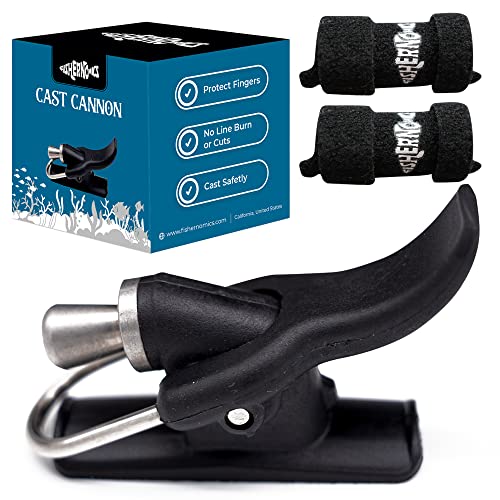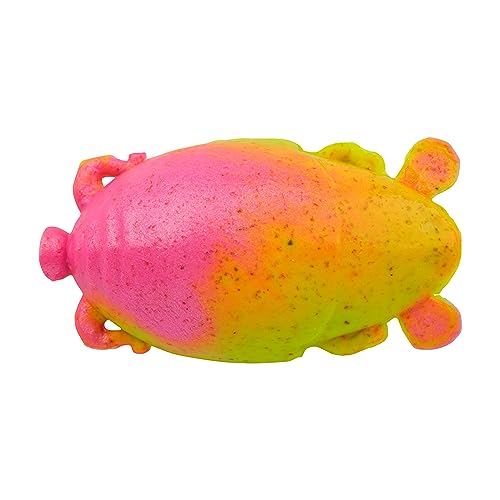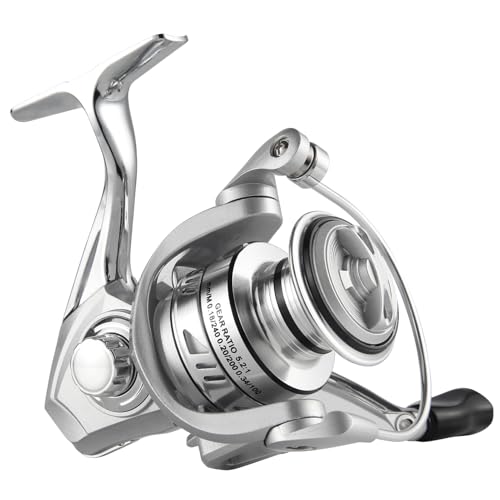Yes, a license is required for surf fishing in most states. Surf fishing is a popular recreational activity that involves casting a fishing line from the shoreline into the ocean.
It allows anglers to target various types of fish, such as striped bass, bluefish, and red drum. However, before you can engage in surf fishing, it is important to understand the licensing requirements. In most states, a fishing license is mandatory for surf fishing, just like any other type of fishing.
The license helps ensure compliance with fishing regulations and supports conservation efforts to maintain the health of fish populations. Therefore, it is essential to obtain the necessary license before embarking on a surf fishing adventure.
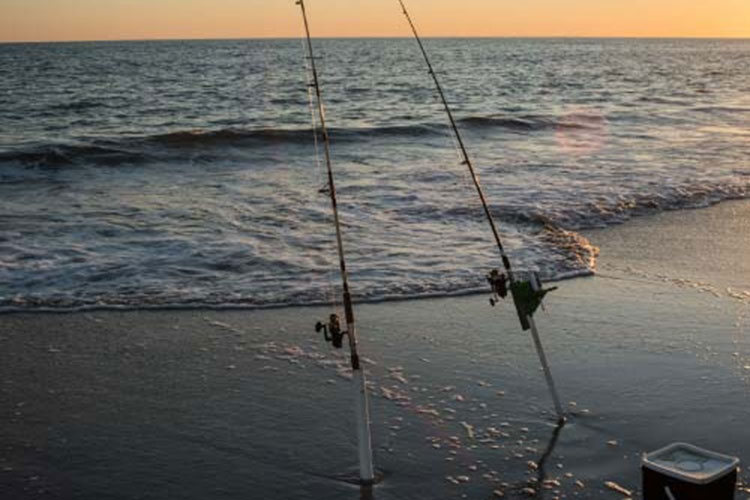
Credit: fishmaster.com
Understanding The Legal Requirements For Surf Fishing
Surf fishing is a popular and exciting activity that allows anglers to cast their lines into the ocean from the shore. But before you head out to catch the big one, it’s important to understand the legal requirements for surf fishing.
This ensures that you stay within the bounds of the law and can enjoy your fishing experience without any legal hassles. In this section, we will explore who needs a license for surf fishing, the purpose of a surf fishing license, and how licensing requirements vary based on location.
Who Needs A License For Surf Fishing?
- Many states in the us require anglers to obtain a fishing license, even for surf fishing.
- The specific licensing requirements may vary from state to state, so it’s essential to research the regulations for your particular location.
- In some states, residents and non-residents have different licensing requirements, so be sure to determine which category applies to you.
- Age restrictions may also apply, with certain states requiring a fishing license for individuals of a certain age and above.
- It’s worth noting that some states offer exemptions for certain groups, such as seniors or individuals with disabilities. Be sure to check if you fall under any of these exemptions.
What Is The Purpose Of A Surf Fishing License?
- A surf fishing license serves a dual purpose of generating revenue for conservation efforts and ensuring the sustainability of fish populations.
- The fees collected from fishing licenses are often used to fund research, habitat restoration, and fish stocking programs.
- By requiring anglers to obtain a license, the authorities can keep track of fishing activity, monitor catches, and enforce regulations that protect both fish populations and the overall ecosystem.
- Licensing also helps prevent overfishing and ensures that everyone has a fair opportunity to enjoy the sport.
How Do Licensing Requirements Vary Based On Location?
- As mentioned earlier, licensing requirements for surf fishing can vary significantly based on where you plan to fish.
- Some states may have a simple process that allows you to purchase and print a license online, while others may require you to visit a local licensing office or authorized vendor.
- The cost of a surf fishing license can also differ from state to state, depending on factors such as residency status and duration of the license.
- Some states may offer different types of licenses, such as annual, daily, or seasonal, allowing you to choose the option that best suits your needs.
- It’s important to familiarize yourself with the specific regulations and limitations associated with the license, such as catch limits, size restrictions, and specific fishing locations.
Understanding the legal requirements for surf fishing is essential to ensure that you remain in compliance with the law and have an enjoyable experience. Be sure to research the licensing requirements for your specific location, obtain the necessary license, and follow the fishing regulations to protect the environment and preserve fish populations for future generations.
Happy fishing!
Essential Information About Surf Fishing Licenses
Surf fishing is an exciting and rewarding way to enjoy the great outdoors while angling for fish along the coastline. However, before you grab your fishing gear and head to the nearest beach, it’s important to understand the requirements for surf fishing licenses.
This article will provide you with essential information on the different types of licenses available, how to obtain them, as well as their duration and cost.
Different Types Of Surf Fishing Licenses Available:
- Annual license: An annual surf fishing license allows you to fish from the shoreline or a pier for a full year. It is perfect for avid anglers who plan to fish multiple times throughout the year.
- Daily license: If you’re only planning a one-time fishing adventure or want to try out surf fishing before committing to a full year, a daily license is a great option. This allows you to fish for a single day without the long-term commitment.
- Non-resident license: Are you visiting from out of state or country? Non-resident surf fishing licenses are available for those who do not reside in the area. This is a great option for tourists or travelers who want to experience surf fishing during their visit.
- Senior or disabled license: Some areas offer discounted or free surf fishing licenses for senior citizens or individuals with disabilities. These licenses aim to promote equal fishing opportunities for everyone, regardless of age or physical capability.
How To Obtain A Surf Fishing License:
- Online application: Many states and local authorities provide online platforms where you can easily apply for a surf fishing license. Simply visit their website, fill out the required information, and make the necessary payment. Once approved, you can either print out your license or save it digitally to display when needed.
- In-person purchase: If you prefer a more personal approach, you can visit a local tackle shop, bait shop, or the local government office responsible for issuing fishing licenses. Here, you can speak with knowledgeable staff who can guide you through the application process and answer any questions you may have.
Duration And Cost Of Surf Fishing Licenses:
- The duration of a surf fishing license varies. Annual licenses usually cover a full calendar year from the date of purchase, while daily licenses are valid for the specific chosen day. Non-resident licenses may have different durations, depending on the area.
- The cost of surf fishing licenses also varies by location and type. Typically, annual licenses are more cost-effective for frequent anglers, while daily licenses provide a more affordable option for occasional fishing trips. Senior or disabled licenses may have reduced or waived fees.
Remember, it is crucial to have a valid surf fishing license before casting your lines into the waves. By understanding the various types of licenses available, how to obtain them, and their duration and cost, you can ensure a legal and enjoyable surf fishing experience.
So go ahead, get your license, and start reeling in those fish!
Protecting Fish Stocks And Conservation Efforts
Surf fishing can be an exciting and rewarding experience, but it is important to recognize the impact it can have on fish stocks and the overall conservation of marine ecosystems. Obtaining a license for surf fishing not only allows you to legally engage in this activity, but it also plays a crucial role in protecting fish stocks and supporting conservation efforts.
Ensuring Sustainable Fishing Practices
By requiring a license for surf fishing, authorities can enforce regulations that promote sustainable fishing practices. Some key points to consider include:
- Size and catch limits: Fishing regulations often include restrictions on the size and number of fish that can be caught, helping to prevent overfishing and ensure fish populations can replenish.
- Closed seasons: Many regions have specific closed seasons or periods when fishing is prohibited or limited. This allows fish to spawn and provides a chance for their populations to recover.
- Gear restrictions: Licenses can help control the type of fishing gear used, such as limiting the use of certain nets or requiring the use of barbless hooks. This helps to reduce unintended catch and bycatch, protecting non-target species.
- Protected areas: Surf fishing licenses often outline designated protected areas where fishing is prohibited or restricted. These areas help conserve vulnerable habitats and ensure the sustainability of fish populations.
Contributing To Fishery Management And Research
License fees for surf fishing are often used to support fishery management initiatives and research. Here are some ways your license fees contribute to the management and understanding of fisheries:
- Fisheries management: The revenue generated from license fees is often directed towards monitoring and managing fish populations. This includes conducting surveys, assessments, and implementing regulations to ensure the long-term health of fish stocks.
- Research and data collection: License fees can fund research projects aimed at understanding the behavior, migration patterns, and life cycles of various fish species. This data is valuable for effective fishery management and conservation efforts.
- Stock assessments: Fishery scientists rely on accurate stock assessments to determine the health of fish populations and make informed decisions about fishing regulations. License fees play a crucial role in funding these assessments.
Supporting Conservation Initiatives Through License Fees
License fees not only contribute to sustainable fishing practices and fishery management, but they also support broader conservation initiatives. Here’s how your license fees can make an impact:
- Habitat restoration: License fees may be used to restore and protect critical fish habitats, such as coastal wetlands, estuaries, and seagrass beds. These habitats serve as breeding grounds and nurseries for many fish species.
- Educational programs: Some license fees are dedicated to educational programs that raise awareness about the importance of conservation and sustainable fishing practices. These programs help promote responsible angling and ensure future generations understand the significance of preserving our marine ecosystems.
- Enforcement and monitoring: License fees contribute to the enforcement and monitoring of fishing regulations. This helps combat illegal fishing activities and ensures that anglers are complying with the rules set in place for the protection of fish stocks and the overall health of the marine environment.
Obtaining a license for surf fishing has broader implications beyond personal enjoyment. It plays a pivotal role in safeguarding fish stocks, supporting research and management efforts, and contributing to valuable conservation initiatives. By adhering to the regulations and guidelines associated with your license, you can help ensure the long-term sustainability of our oceans’ resources.
So, grab your fishing gear, obtain your license, and enjoy the thrill of surf fishing while actively contributing to the conservation of our fish populations.
Promoting Safety And Responsible Fishing
Surf fishing is an enjoyable and popular pastime for many anglers. Whether you’re a beginner or an experienced angler, it’s important to promote safety and responsible fishing practices to ensure an enjoyable experience for everyone involved. In this section, we will discuss the key points in educating anglers on safety guidelines, encouraging responsible fishing behavior, and enforcing regulations to deter illegal fishing activities.
Educating Anglers On Safety Guidelines
- Providing educational resources: Anglers should have access to informative materials that outline safety guidelines, such as fishing handbooks or online resources.
- Promoting awareness: Raising awareness about potential risks and hazards associated with surf fishing can help anglers make informed decisions.
- Offering training programs: Organizing workshops or training programs that focus on surf fishing safety can equip anglers with the necessary skills and knowledge.
- Emphasizing basic safety measures: Educating anglers on essential safety measures, such as wearing appropriate attire and using proper equipment, will help minimize accidents or injuries.
Encouraging Responsible Fishing Behavior
- Practicing catch and release: Encouraging anglers to release fish they catch, unless it is within legal limits and for personal consumption, helps preserve fish populations for future generations.
- Properly disposing of waste: Emphasizing the importance of disposing of waste responsibly, including fishing lines, hooks, and other debris, contributes to the overall cleanliness of the fishing environment.
- Respecting fishing regulations: Educating anglers about local fishing regulations, including bag limits and size restrictions, ensures compliance and responsible fishing practices.
- Protecting the environment: Promoting the preservation of natural habitats and wildlife by avoiding fishing in protected areas or disturbing sensitive ecosystems.
Enforcing Regulations And Deterring Illegal Fishing Activities
- Regular patrols and monitoring: Increasing patrols and monitoring efforts in fishing areas helps enforce regulations and discourages illegal activities.
- Training and empowerment: Providing law enforcement officials with proper training and resources can empower them to effectively address illegal fishing activities.
- Encouraging reporting: Encouraging anglers to report any suspicious or illegal fishing practices can aid in the detection and prevention of such activities.
- Collaboration with authorities: Collaborating with local authorities and fisheries management organizations can enhance enforcement capabilities and deter illegal fishing.
By focusing on educating anglers on safety guidelines, encouraging responsible fishing behavior, and enforcing regulations, we can create a thriving community of surf anglers who prioritize safety and sustainability. Together, we can ensure an enjoyable and sustainable surf fishing experience for all.
Step-By-Step Guide To Obtaining A License
So, you’ve decided to give surf fishing a try and now you’re wondering if you need a license to cast your line in the ocean. The answer varies depending on where you plan to fish, as each state or region has its own set of regulations.
To help you navigate through the process, here’s a step-by-step guide to obtaining a license for surf fishing.
Researching State Or Regional Requirements
Before you can embark on your surf fishing adventure, it’s important to familiarize yourself with the specific requirements of the state or region where you’ll be fishing. Here are the key points to consider:
- Start by visiting the official website of the state’s fish and wildlife department. This is where you’ll find detailed information about the fishing regulations and license requirements.
- Look for specific sections related to surf fishing or shoreline fishing. These sections will provide you with the necessary details on licensing.
- Pay attention to any restrictions or limitations imposed on surf fishing, such as seasonal closures, size limits, or catch limits. These regulations are in place to protect marine life and ensure sustainable fishing practices.
Finding Authorized Vendors Or Online Platforms
Once you’ve gathered the necessary information about the license requirements, the next step is to find authorized vendors or online platforms where you can obtain your license. Here’s what you need to know:
- Authorized vendors can include local bait and tackle shops, sporting goods stores, or even government offices. These locations can provide you with the necessary paperwork and process your license on-site.
- Many states now offer the convenience of online platforms where you can apply for and purchase your fishing license. Visit the official website of the fish and wildlife department to find out if this option is available to you.
- Take note of any fees associated with obtaining a license. These fees vary from state to state, so be sure to budget accordingly.
Completing The License Application Process
With your research done and authorized vendor or online platform identified, it’s time to complete the license application process. Here’s how to proceed:
- Gather all the required documents and information, such as proof of residency, identification, and any additional permits or certifications you may need.
- If applying through an authorized vendor, visit the designated location and present your documents. The vendor will guide you through the application process and issue your license upon successful completion.
- If applying online, navigate to the designated website and follow the step-by-step instructions. Be prepared to provide the necessary information and upload any required documents. Once your application is submitted and approved, you will receive a digital copy of your license.
By following these simple steps, you can ensure that you are legally prepared for your surf fishing excursion. Remember, compliance with fishing regulations not only helps protect the marine environment but also ensures a fair and enjoyable experience for all anglers.
So grab your rod, pack your tackle box, and head out to the shoreline with the confidence that you’re all set to cast your line and reel in some fish!
Tips For Complying With Surf Fishing License Regulations
If you’re planning to try your hand at surf fishing, it’s important to know and abide by the necessary license regulations. Being aware of catch limits, size restrictions, properly carrying your license, and timely renewals will ensure that you can enjoy your fishing experience without any hiccups.
Here are some valuable tips to help you comply with surf fishing license regulations:
Understanding Catch Limits And Size Restrictions
Before you head out to the beach with your fishing gear, it’s crucial to be familiar with the catch limits and size restrictions set forth by your local fishing authorities. Here are some key points to remember:
- Different fish species may have specific catch limits and size restrictions, so make sure to research and understand the regulations for the targeted species.
- It’s important to know the legal size or slot limit for each species to ensure you’re only keeping fish that meet the requirements. This helps in preserving the fish population and maintaining a healthy ecosystem.
Carrying The License While Fishing
Just like driving, fishing requires you to have your license on hand at all times. Here’s what you need to know:
- Always carry your valid surf fishing license with you while fishing. This helps authorities verify your compliance with the regulations.
- Be sure to keep your license in a safe and accessible place, such as a waterproof pouch or your wallet, to prevent any damage or loss.
Renewing The License In A Timely Manner
To continue fishing legally, you’ll need to renew your surf fishing license within the designated timeframe. Follow these guidelines:
- Mark your calendar or set a reminder to renew your license before it expires. Operating with an expired license can result in penalties or fines.
- Check with your local fishing authorities to determine the renewal period and any specific requirements for the process.
Remember, compliance with surf fishing license regulations not only ensures you’re fishing within the bounds of the law but also contributes to the sustainability of fish populations. By understanding catch limits, size restrictions, carrying your license while fishing, and renewing it on time, you can enjoy a fulfilling and trouble-free surf fishing experience.
So, grab your fishing gear, obtain your license, and get ready for an exciting adventure along the shoreline!
Conclusion
Having a fishing license is often a requirement for surf fishing, and it is important to ensure that you are in compliance with local regulations and laws. Not only does having a license help protect the environment and preserve fish populations, but it also allows for proper management of fishing activities.
It is advisable to check with the local authorities or visit the official government website to gain accurate information on fishing license requirements in your area. Remember, while surf fishing can be an enjoyable and exciting activity, it is essential to approach it responsibly and ethically.
So, before you head out to surf fish, make sure you have the necessary license, respect the fishing restrictions, and take care of the environment. Happy fishing!

